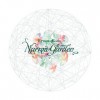Eyvind Kang, "The Narrow Garden"
 The year's first contender for top honors comes from violinist and composer Eyvind Kang. This new full-length on Ipecac sits among his major works, displaying a rare breadth of compositional talent, spectacular playing, and raw emotion.
The year's first contender for top honors comes from violinist and composer Eyvind Kang. This new full-length on Ipecac sits among his major works, displaying a rare breadth of compositional talent, spectacular playing, and raw emotion.
Eyvind Kang is a modern compositional giant who should require no introduction to the Brainwashed community. Kang has collaborated with avant-garde musicians ranging from Sunn O))) to Sun City Girls, and has contributed string arrangements to records by John Zorn, Mike Patton, Animal Collective, Bill Frisell, Laurie Anderson and Lou Reed (pre-Lulu). Most recently, his appearance on last year's Baroque Primitiva, by Alan "Alvarius B" Bishop, elevated that album from "very nice" to "essential." His solo recordings span well over a dozen full-lengths in 15 years, with highlights including Athlantis, The Yelm Sessions, and an Ipecac album smeared by (surprise!) Patton's divisive croon: Virginal Co Ordinates, which I very strongly feel is Kang's best album. Until now, that is.
Kang is at the very top of his game on The Narrow Garden, at a lean seven tracks and 37 minutes with no filler. Opener "Forest Sama'i" functions as a grand prelude, launching the album on a melodic, playful note. Kang recorded The Narrow Garden in Barcelona with an ensemble cast of 30 musicians, and on pieces like "Forest Sama'i," the group effort shines. Grounded by a Middle Eastern-derived melody, accented by meticulous woodwinds and strings (including Kang's violin), the song speeds its tempo near the end to stirring effect. "Pure Nothing" recalls Kang's collaborative LP with Jessica Kenney, Aestuarium, reissued last year on Ideologic Organ. Here, Kenney sings as if from a church hymnal, her angelic vocals floating across a classical soundscape, rich with quivering strings, as she cries out with pseudo-naïveté: "I cannot say whether I am asleep or awake / somebody tell me."
Led by the cries of seagulls at the start of "Usnea," a stormcloud of eerie atmosphere hovers onto the scene. The mood shift from "Pure Nothing" to "Usnea"—from Kenney's cloudbusting vocals into queasy dread—is perfect in its execution. The wall of Dolby THX-worthy, droning maelstrom eventually cedes to a couple of lingering woodwinds, dancing in the aftermath of the storm, transitioning into "Mineralia" at the album's midpoint. Kenney returns for a few operatic lines in what sounds like Latin, her singing this time hushed, drawn inward; she is overtaken by lush melodies that recall those of "Forest Sama'i" as the piece evolves. The spacious, relaxed tone foreshadows the title track, which is far more harsh and claustrophobic.
"The Narrow Garden" echoes the slow-building unease of "Usnea," with its chorus of stringed instruments lingering just long enough on individual, discordant clusters of notes to keep one's breath held tightly. "Nobis Natalis" clears the air to nice effect, spotlighting Kenney's vocals for a minute-long encore performance—and providing a palate cleanser before the album's strongest (and closing) statement, "Invisus Natalis." Cinematically evoking an array of natural imagery—birds, plants, flowers, water and so forth—Kang's melodies dance and twist about with ease. Over time, the song builds to a climax; violence is imminent, implied by the awesomely tense arrangement that steamrolls into film score-worthy drama, then unexpectedly drops out in a flicker of static.
Engaging from start to finish, The Narrow Garden is a strong contender for Eyvind Kang's best, and undoubtedly ranks among his high water marks as a recording artist. Its songs take real risks, skipping from Arabian and Middle Eastern melodies, to traditional Asian folk music, to Baroque and European classical composition. Envisioned and set into motion by one of today's sharpest composers, impeccably arranged, flawlessly played, beautifully produced: I cannot conceive of any way to improve upon Kang's stunning achievement on The Narrow Garden.
Samples:



